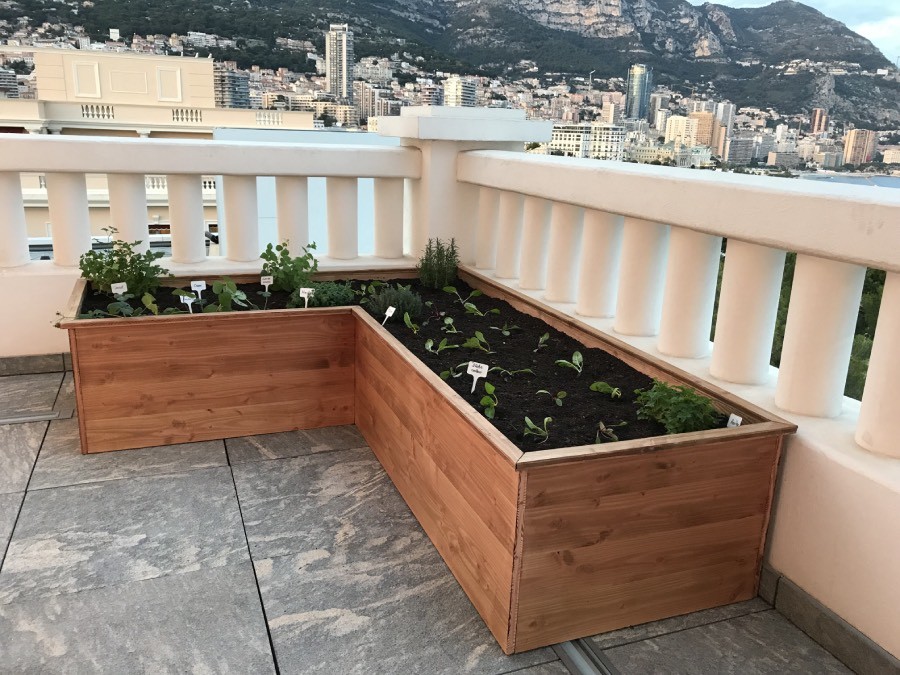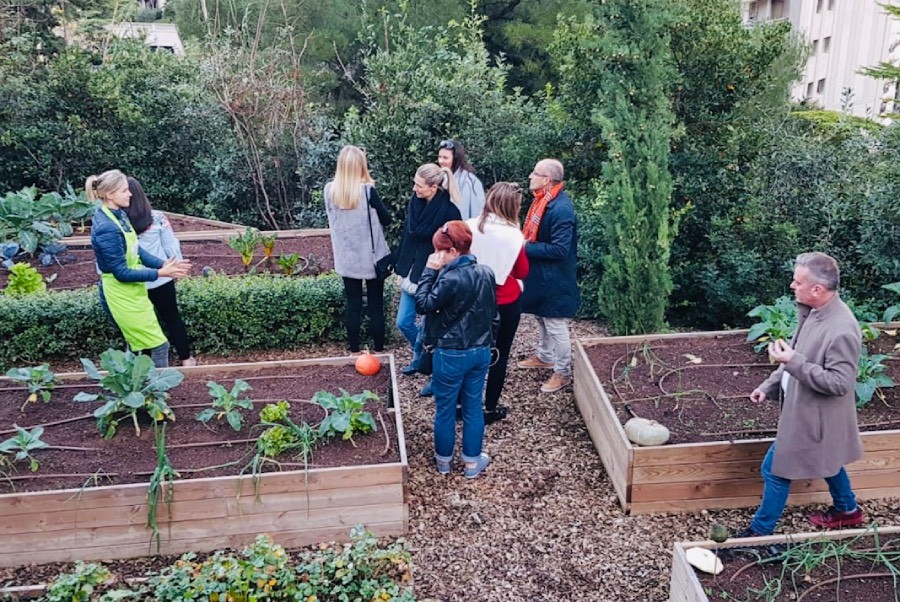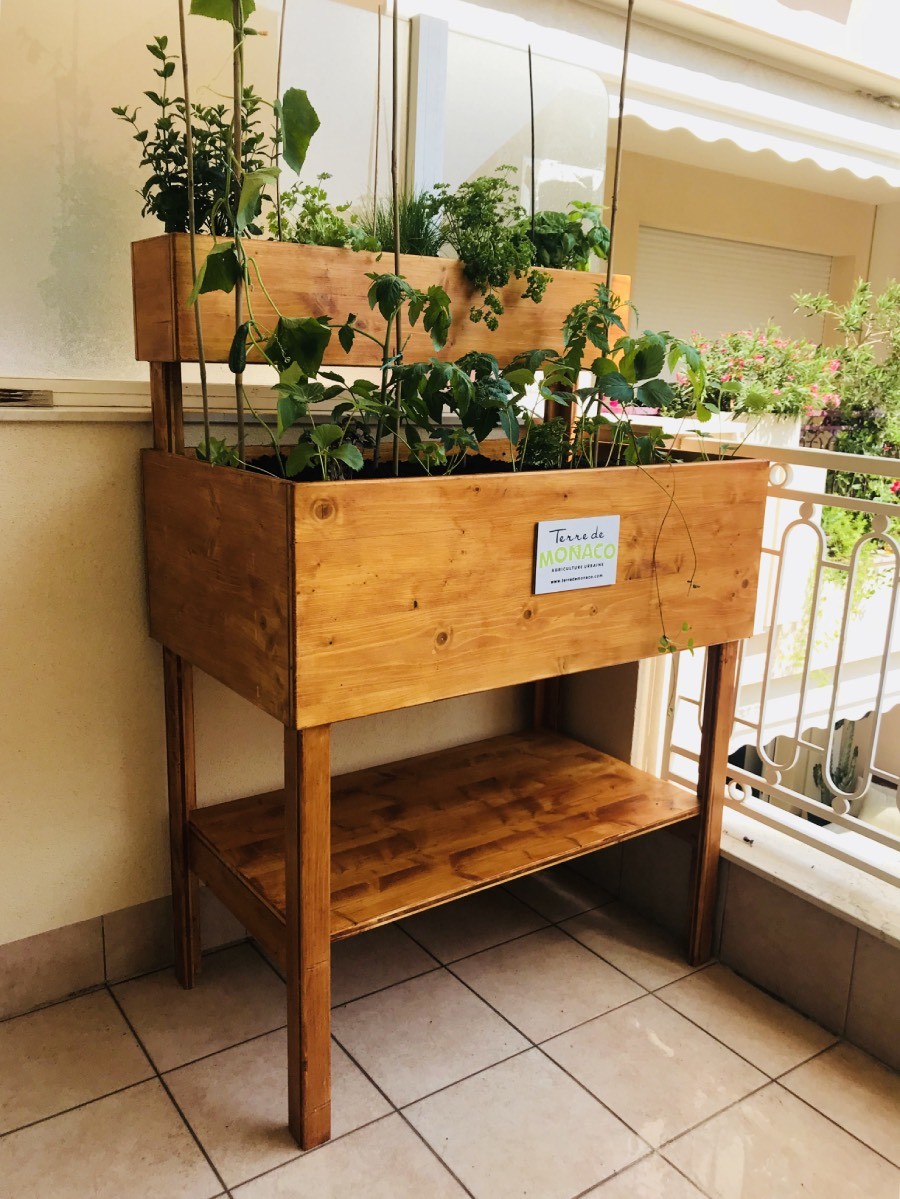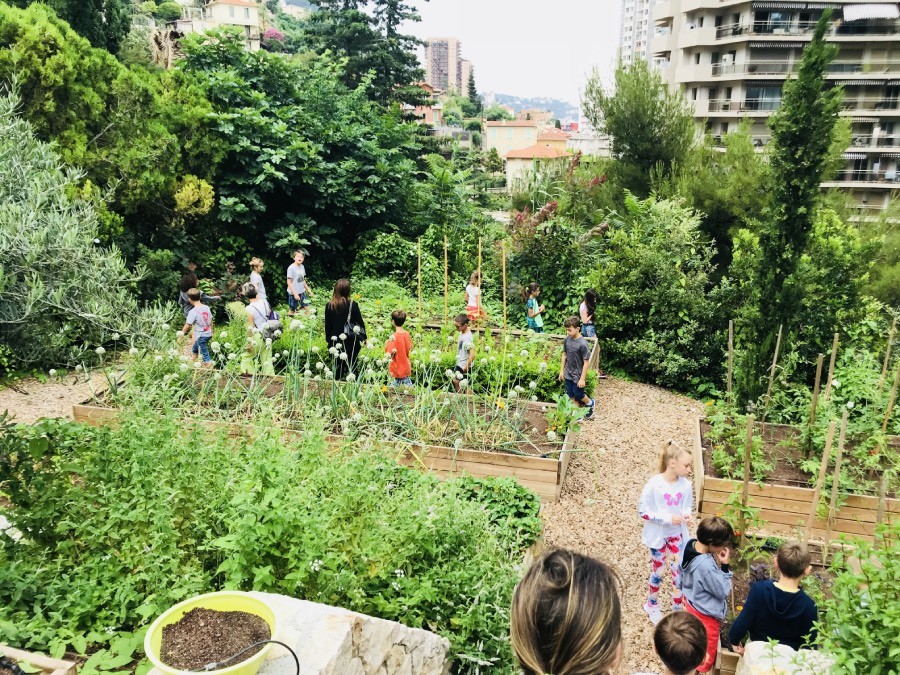The concept of urban agriculture is sweeping across the globe, as major cities embrace not only the health and environmental benefits of gardening in a concrete landscape, but also the therapeutic spin-offs. Monaco is one such destination, thanks to the likes of Jessica Sbaraglia, who is infectiously passionate about bringing bountiful gardens to balconies and rooftops throughout the Principality. And the results so far? Well, take a look for yourself.

Terre de Monaco was created in 2016 by Jessica Sbaraglia to bring urban agriculture to the open grounds and rooftops in Monaco, particularly fruit and vegetable gardens that share the values of organics and permaculture.
So what is permaculture?
While conventional gardening tends to use a one-size-fits all method for growing food, permaculture is based on the concept of using perfect plants for the land, the climate, and each other. For example, says Jessica, basil has a smell that repels the pests that attack tomatoes. If you are planting lettuce and eggplant together, lettuce has a shorter crop life and when harvested will not interfere with the growth of eggplants. You can then have two crops on one piece of land.
This method also advocates cultural diversity, respect for the seasons, and obviously cultivation without the use of pesticides.
But why you Jessica?
“Four years ago, I was asking myself existential questions about life, when I visited my parents in Switzerland and their family vegetable garden which they were lovingly cultivating. It is thanks to them that I know the true taste of untreated vegetables that have matured fully and naturally. I realised that the earth not only brought me food, but took care of me. The act of gardening is soothing and meditative, it’s like recognising a part of your ancestral yourself.
Starting Terre de Monaco was difficult, like any pioneering project, but when we find what drives us, we obviously do not give up at the first hurdle.”
And this is what Terre de Monaco has achieved to date:
Currently in Monaco, they operate 1,600m2 of market gardening which produced around 2.5 tons of vegetables last year alone.
“Who would have thought it?” laughs Jessica, “A tiny country of two square kilometres, of which 80% is concrete, and which hasn’t really experienced agriculture for 150 years!”
“We grow mostly ‘old’ or ‘forgotten’ vegetables, ones that we do not necessarily see in markets these days as they are often less productive, but very tasty. It is important for us to find diversity on the plate and thereby safeguard the inheritance of seeds.”
Gardens can be custom made for individuals (-100m2) for a private or corporate balcony, with advice and plants available for any time of year. For example, Terre de Monaco maintains a 30m2 vegetable garden at the Prince Albert II Foundation Monaco, and employees get to enjoy the vegetables.
In addition, there is:
– a 400 m2 garden at the Monte-Carlo Bay hotel, where the vegetables are used in the gastronomic Blue Bay restaurant,
– a 250 m2 garden at the Princess Grace Hospital of Monaco, where the vegetables are used for the hospital kitchen,
– a 450m2 garden at the Odeon tower, as well as 50 hens and 10 bee hives, with all produce going to the residents of the tower,
– and a 500m2 garden on the roof of Ruscino, where the produce is sold to people in the building.

But there’s more…
There are 10 schools in Monaco offering cultivation courses as well as class outings to vegetable gardens, thanks to Terre de Monaco. “It is important to transmit this information to children,” says Jessica, “so that they are aware of the origins and taste of their food.”
As an urban farmer, they participate in the recycling of straw bales after the Monaco Jumping event, they utilise tortoise manure from the Oceanographic Museum, and they even re-use wooden wine crates as portable vegetable gardens.
In early 2019, the started working with the psychiatric ward at the Princess Grace Hospital introducing a therapeutic kitchen garden for teens in trouble. “The results are very positive, and we love to see their evolution,” smiles Jessica.
“As you know, urban agriculture is an ecosystem with multiple functions that can affect many people,” Jessica says in summary. “We hope to contribute to the health of people’s stomachs and their psyche, while respecting our planet. It’s a common sense philosophy that can be applied at home, because it is simply land, and it’s time to start caring!”


